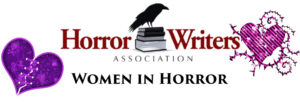Alma Katsu has been writing novels since 2011. Her work has received starred reviews from Publishers Weekly, Booklist, and Library Journal, been featured in the NY Times and Washington Post, and won awards in the U.S. and internationally. THE HUNGER (2018) is probably her best-known novel, was named one of NPR’s 100 favorite horror stories, was on numerous Best Books of the Year lists. She also writes spy novels, with RED LONDON being the latest in the series. almakatsubooks.com
What inspired you to start writing?
I was one of those introverted kids who always had her nose in a book and I suppose that’s what made me want to be a writer. I started writing stories as a teenager. Decades later, I’m still at it.
What was it about the horror genre that drew you to it?
I was drawn more to magic, the occult, and stuff like that, than to flat out horror, and that was because I grew up in a spooky little New England town that was thick with stories about ghosts and haunted houses. But I am also of the generation of Dark Shadows and Hammer horror films, both of which bring a little romance and Gothic elegance to their stories, and I find that both are still influences.
Do you make a conscious effort to include female characters and themes in your writing and if so, what do you want to portray?
Always. Of course, female characters are easier for me to wrap my head around and give depth. I seem to be drawn back to certain themes (probably wallowing in my subconscious) like proving one’s worth, dealing with the ghosts of the past, and dealing with our pesky monstrous side that keeps insisting on coming out.
What has writing horror taught you about the world and yourself?
I’ve talked before about my experience as an intelligence analyst working on the darker side of human experience such as genocides and mass atrocities. I’ve seen that horror is not confined to the pages of a book or the silver screen: humans are prone to do horrible things. Better to look it dead in the eye than pretend it doesn’t exist. We are all a little bit monster, or have the potential to be: the question is what are we going to do about it?
How have you seen the horror genre change over the years? And how do you think it will continue to evolve?
This question is a bit tricky for me because I don’t follow the genre deeply, not like many of my peers. When I was younger, I read King and Rice and Barker and some early foundational works, but I don’t think of myself as a student of the genre. Having said that, I will say that it seems in the past half-decade or so that the horror genre is broadening. A lot of books that might’ve only been considered ‘suspense’ now can be considered to overlap into horror. I’m all for it, as it brings in new stories and, hopefully, new readers. Broad is always better than a straitjacket.
How do you feel women have been represented thus far in the genre and what hopes do you have for representation in the genre going forward?
There are more women writing in the genre, all to the good. We bring different views and experiences in our stories. And—going back to a previous answer, my view may be a bit limited—but lately, if you go through most any recently published anthology, you’ll find more of a diversity in the type of story. You’d be hard-pressed to say, in most cases, which stories were written by men and which by women.
Who are some of your favorite female characters in horror?
Well, Stephen Graham Jones’s Jade Daniels, from the Indian Lake Trilogy, for one. She’s a great example of a character who explores her own fears and manages to transcend them. Also, it’s instructional to see how she evolves from the first to the second book. Some may disagree but I think of Daphne du Maurier’s Rebecca as being horror (one of those overlapping books). The unnamed narrator is just brilliantly written.
Who are some women who write horror you recommend our audience check out?
Rachel Harrison is one of my favorites for her fresh, feminist perspective. Ditto for V. Castro and Cynthia Pelayo. If you want to go OG, you can’t go wrong with Anne Rice. Audrey Niffennegger’s Her Fearful Symmetry is one of my favorite ghost stories.
What is one piece of advice you would give horror authors today?
Horror represents our fears and we’re living in a terribly fearful time, so it’s an opportunity to do some good by helping people understand why they’re afraid. But horror can be a blunt weapon, so be responsible and mindful of what you’re putting out there.
And to the women who write horror out there who are just getting started, what advice would you give them?
Don’t be afraid to join the party. Everyone in the horror field is very friendly, it seems. It’s easy to make friends. Just come up and say hi! And, of course, to read A LOT.



